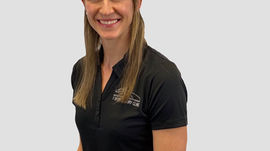Head Games - Concussion
- Gabrielle Cave - Owner/Physiotherapist
- Oct 4, 2017
- 2 min read

What is a concussion?
A concussion is a disturbance in brain function caused by a direct or indirect force to the head. It results in signs and / or symptoms and most often does not involve loss of consciousness. Concussion should be suspected in the presence of any one or more of the following:
[if !supportLists]- [endif]headache
[if !supportLists]- [endif]unsteadiness, loss of balance
[if !supportLists]- [endif]confusion, disorientation, memory loss
[if !supportLists]- [endif]Abnormal behaviours eg.changes in personality
- Visible facial injury with any of the above.
What should you do if you suspect a concussion?
Recognize and remove the athlete from play immediately and get them medically assessed.
Monitor the athlete for 24-48 hours in case any signs or symptoms change. Do not leave them alone.
Do not allow the athlete to drive a motor vehicle until cleared to do so by a medical professional.
Recovery from the injury in most adults is up to 2 weeks and children up to 4 weeks although for some the symptoms of a concussion may last months or years.
NO athlete diagnosed with concussion should be returned to sports participation on the day of injury.
What signs should you look for when monitoring the athlete over the first 24 - 48hours?
- Presence of a headache that gets worse
- They are very drowsy or can’t be awakened
- They can’t recognize people or places
- They have repeated vomiting
- They behave unusually or seem confused; are very irritable - Have seizures (arms and legs jerk uncontrollably)
- They have weak or numb arms or legs
- They are unsteady on their feet; have slurred speech
Remember that the athlete should not be left alone and must go to a hospital at once if any of the above are noted.
Important points to remember:
[if !supportLists]- [endif]NO athlete diagnosed with concussion should be returned to sports participation on the day of injury.
[if !supportLists]- [endif]When returning athletes to play, they should be medically cleared and then follow a stepwise supervised program, with stages of progression before return to full play.
[if !supportLists]- [endif]No alcohol or medications should be taken without medical supervision (including aspirin or anti-inflammatory medication).
[if !supportLists]- [endif]Do not allow the athlete to drive until medically cleared to do so.
[if !supportLists]- [endif]Sometimes children who have a concussion may find it hard to concentrate in school and may get a worsening headache or feel nauseas when they are in school. Talk to your medical professional to establish a treatment plan if this occurs.
[if !supportLists]- [endif]There are specific protocols that can be followed for return to school, work and play.
[if !supportLists]- [endif]Following the rules of a sport can significantly reduce the risk of concussion.





























Comments